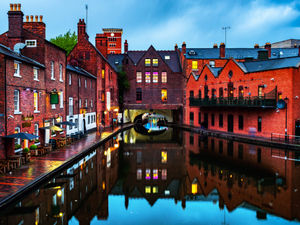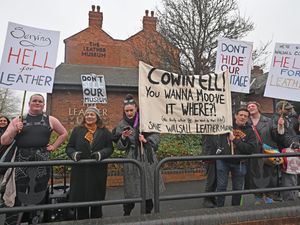Story of Red Emma being brought to life at Black Country Museum
A banner-wielding woman in cloche hat, long skirt and thick stockings strides through cobbled streets appealing to passers-by for votes – batting off good-humoured heckles from men.
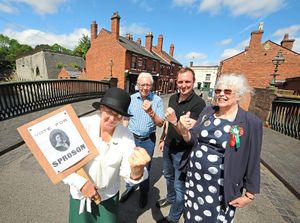
Back in 1927 when suffragette Emma Sproson, Wolverhampton's first ever female councillor, was campaigning for re-election, the jibes would not have been so friendly.
But here at the Black Country Living Museum in Dudley, nearly a century on, attitudes have changed. And yet few visitors to the sprawling site are aware of the feisty politician, known as Red Emma, or her place in history.
WATCH: Emma Sproson at Living Museum
Staff are hoping to change that with the introduction this summer of Sproson as an historical character brought to life by one of their re-enactors.
At the launch this week were two of the suffragette's descendants – grandson Dave Sproson, 75, from Bridgnorth, and great-grandson Richard Sproson, 43, of Tettenhall, Wolverhampton – who were both delighted by the move.
"This is an area that sometimes does not seem to want to celebrate what local people do, we're too self-deprecating, so it's fantastic that the museum has done this," said Dave.
"I've always known about Emma growing up but I've become a lot more aware of her in last five to 10 years with the centenary of some women getting the vote.
"I'm very proud of the connection and feel a certain responsibility to carry on her work in terms of fighting for equality and trying to live by the values she held."
Emma is enacted by 53-year-old Deborah Pillow, from Oldbury, who fought back tears when she was introduced to her character's family. "It's such an honour to meet people actually related to her," she said.
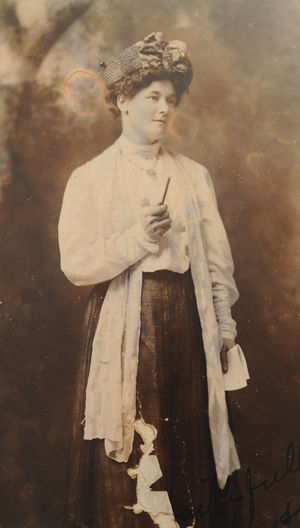
"Emma was such a strong woman – we still need women like her today. She came from a tough, working-class background, unlike most of the Suffragettes who were able to depend on their rich, middle-class families. She didn't just campaign for women's votes, she fought for basic health and housing issues for everyone. She was such an inspiring person.
"Interestingly in 1927, when we take up the story, she was campaigning as an independent after breaking with the Labour Party over what she saw as misuse of the public purse after discovering fellow councillors were charging £5 expenses for a trip to London which she said only cost her 30 shillings – some things never change," said Deborah.
Born in West Bromwich in 1867, Emma was one of seven children of a canal boat builder who drank heavily, plunging the family into poverty. They moved to Bilston when she was eight and the following year she was sent out to work as a home help.
As a teenager she moved to Lancashire, where her interest in politics was sparked when a politician at a public meeting refused to answer her question because she was a woman, and therefore did not have a vote.
She returned to Wolverhampton in 1895, marrying the local Labour Party secretary Frank Sproson and hosting the Pankhursts at the couple's Hordern Road home whenever they spoke at meetings in the Black Country.
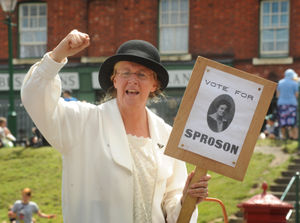
At a demonstration in 1907 Emma was among more than 700 suffragettes who made two failed attempts to force entry into the Houses of Parliament. She was arrested, along with 66 other women, serving 14 days in Holloway Prison as a punishment.
The mother-of-three was ridiculed and abused in the streets of the Black Country, and suffered violence for her beliefs but she never gave up the fight.
She became the first woman to be elected to Wolverhampton Council in 1921, representing the Dunstall ward, but lost her seat in the 1927 election.
One of her admirers Penny Ryan, national chair of the Townswomen's Guild, made the trip from London for the launch and spoke of her pride of the Guild's "genuine, direct" link with Sproson through its roots in the Suffragette movement.
"We're still a campaigning organisation, fighting really important issues like FGM and slavery, not just the cosy topics, so we feel people like Emma are such a role model, an example of what women can still be doing, campaigning.
"I also believe what the museum is doing here – raising the profile of women's history which is still so male-orientated – is a great thing. We have to reclaim women's history."

